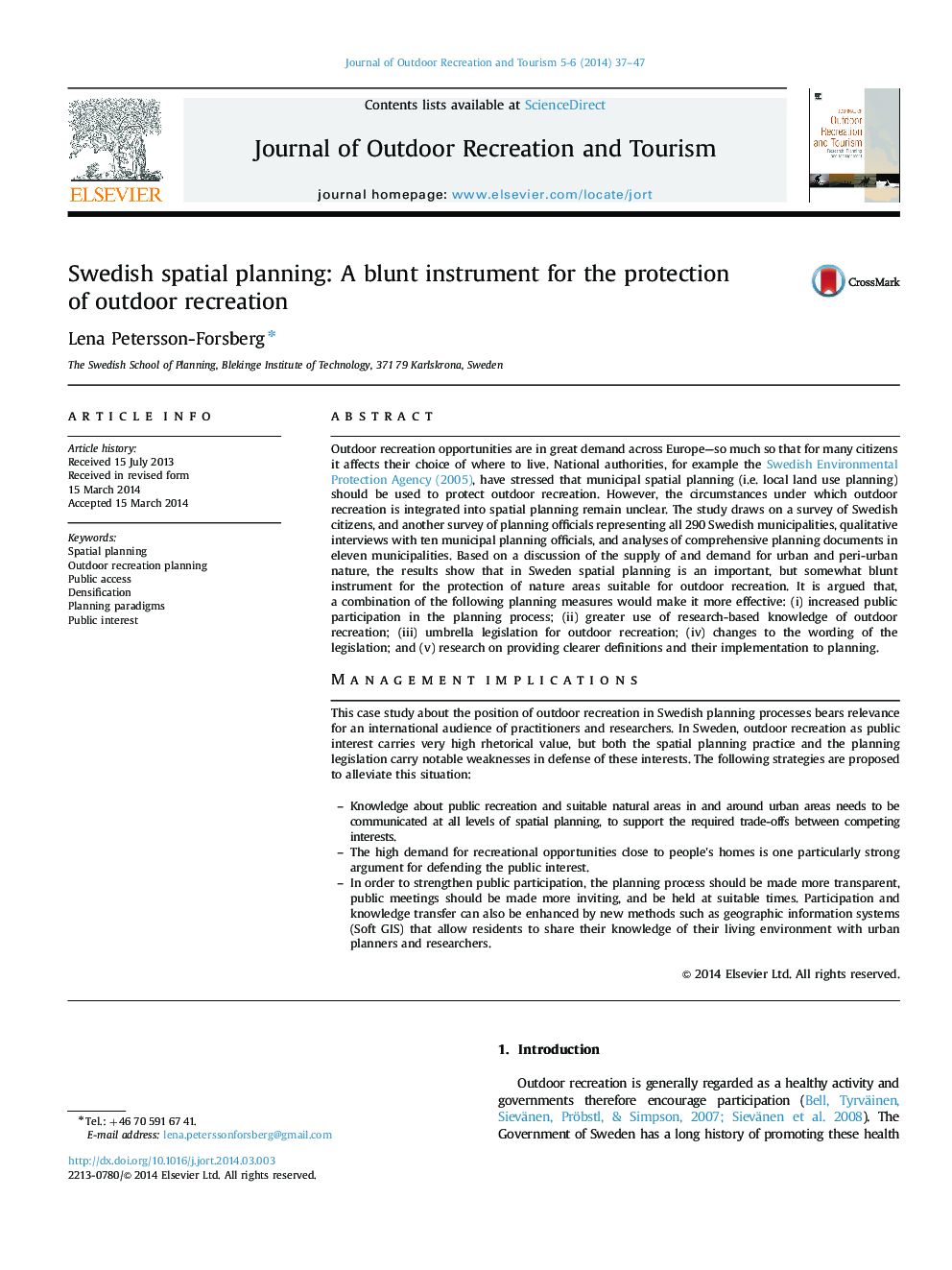| کد مقاله | کد نشریه | سال انتشار | مقاله انگلیسی | نسخه تمام متن |
|---|---|---|---|---|
| 92430 | 159957 | 2014 | 11 صفحه PDF | دانلود رایگان |
Outdoor recreation opportunities are in great demand across Europe—so much so that for many citizens it affects their choice of where to live. National authorities, for example the Swedish Environmental Protection Agency (2005), have stressed that municipal spatial planning (i.e. local land use planning) should be used to protect outdoor recreation. However, the circumstances under which outdoor recreation is integrated into spatial planning remain unclear. The study draws on a survey of Swedish citizens, and another survey of planning officials representing all 290 Swedish municipalities, qualitative interviews with ten municipal planning officials, and analyses of comprehensive planning documents in eleven municipalities. Based on a discussion of the supply of and demand for urban and peri-urban nature, the results show that in Sweden spatial planning is an important, but somewhat blunt instrument for the protection of nature areas suitable for outdoor recreation. It is argued that, a combination of the following planning measures would make it more effective: (i) increased public participation in the planning process; (ii) greater use of research-based knowledge of outdoor recreation; (iii) umbrella legislation for outdoor recreation; (iv) changes to the wording of the legislation; and (v) research on providing clearer definitions and their implementation to planning.Management implicationsThis case study about the position of outdoor recreation in Swedish planning processes bears relevance for an international audience of practitioners and researchers. In Sweden, outdoor recreation as public interest carries very high rhetorical value, but both the spatial planning practice and the planning legislation carry notable weaknesses in defense of these interests. The following strategies are proposed to alleviate this situation:–Knowledge about public recreation and suitable natural areas in and around urban areas needs to be communicated at all levels of spatial planning, to support the required trade-offs between competing interests.–The high demand for recreational opportunities close to people׳s homes is one particularly strong argument for defending the public interest.–In order to strengthen public participation, the planning process should be made more transparent, public meetings should be made more inviting, and be held at suitable times. Participation and knowledge transfer can also be enhanced by new methods such as geographic information systems (Soft GIS) that allow residents to share their knowledge of their living environment with urban planners and researchers.
Journal: Journal of Outdoor Recreation and Tourism - Volumes 5–6, April 2014, Pages 37–47
